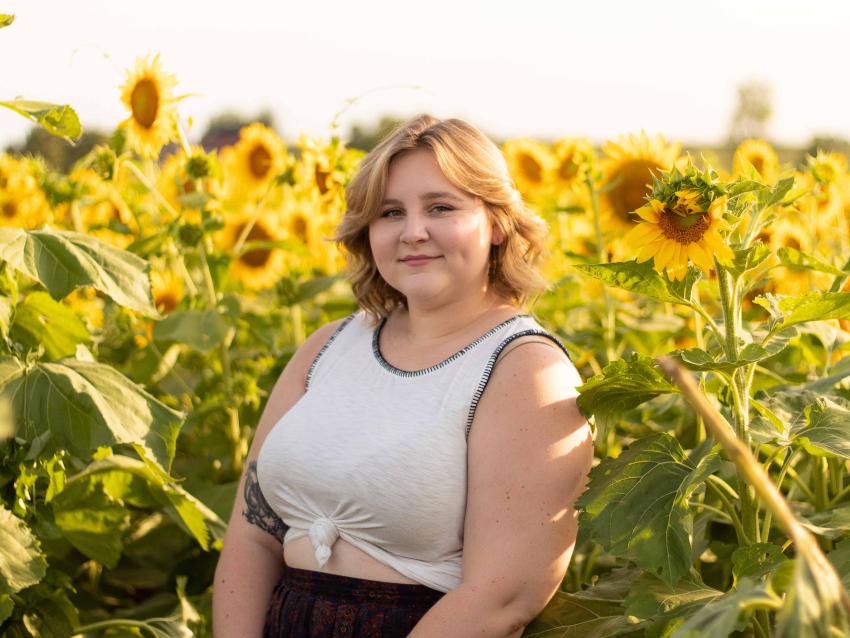
Summer Research Fellow Spotlight Katie Creech
"My current body of work is questioning the ideas and truths about sexual desire, sin, shame, and a sense of belonging through the eyes of the Roman Catholic church—which heavily influenced my childhood. I am inspired both by works that celebrate the Catholic faith, like in the Renaissance, and those that playfully engage with the idea of lust, as seen during the Rococo era. Furthermore, I am drawn to the almost sadistic nature of European folklore. I take into consideration all these historical elements when designing my work. In my own work, I often find myself using animals as symbols to relay contradicting messages of domesticity the church expects of women. I primarily work in painting and fibers. Through these materials I can communicate my ideas of confusion within the Catholic church. Painting offers up a historical aspect to my work and speaks to the time when most paintings were completed by men, either for the church or depicting naked women. Through painting, I can reclaim the historical “male gaze” as my own and rewrite the traditional narrative with a positive and empowering feminist view of the female body. Furthermore, working in fibers also brings an aspect of feminism and traditional women’s work which allows me to speak to the traditional roles of women in the church, and how that does not fit my modern-day mentality. By using fiber materials, I can communicate a softness that women are expected to have in the church. However, the statements I am making through my sculptural fiber pieces overpower the apparent delicateness of the material. This allows my fibers work to be a play on the traditional view of women’s work as well as the conservative view of women in the church."
Q: How did you first get interested in undergraduate research at UK?
A: "I first got interested in undergraduate research when I toured the art department as a high school student. I was introduced to a program within the studio art department called the BFA program (Bachelor's of Fine Arts). Through this, you are able to develope a thesis and body of work that has a much more narrow and clear pathway than a the regular studio art degree program. I also get to work one on one with many of my professors and collaborate with other BFA students while completing my thesis. It's overall a much more rounded learning experience and something I treasure."
Q: How long have you been engaged in undergraduate research?
A: "I have been working on my thesis in the BFA program since October 2018."
Q: Describe what a typical day of remote summer research activity looks like for you. How does this differ from your pre-COVID research activity?
A: "On a normal day I will usually read articles, watch videos, or listen to podcasts that are related to what I am working on. I also keep a notebook that I write everything down in, as well as a list on my phone (in case I have ideas while I'm out and about). Then I usually sketch out ideas, write small essays about what I'm thinking about for a piece, and then get to work! I usually don't have much of a "plan" once I'm actually creating the final piece of art. Once I sit in front of a canvas to paint my ideas they just sort of happen. While they still greatly rely on all my previous research, note taking and sketches, the final piece really just forms itself."
Q: What has been the most exciting aspect of your research so far?
A: "I think the most exciting aspect is always coming up with a new idea to explore. I'm the type of person that doesn't want to stay on one topic for too long, so I'm always trying to create something bigger, better, and more interesting."
Q: What advice would you give to other UK students thinking about doing research?
A: "Do it! You learn so much about yourself and your environment. It really shapes you as a person, especially if you're working on something very personal."
The UK Office of Undergraduate Research's Summer Research & Creativity Fellowship program provides undergraduates with the opportunity to study in a wide variety of disciplines while doing intensive and self-directed research under the supervision of a faculty mentor.